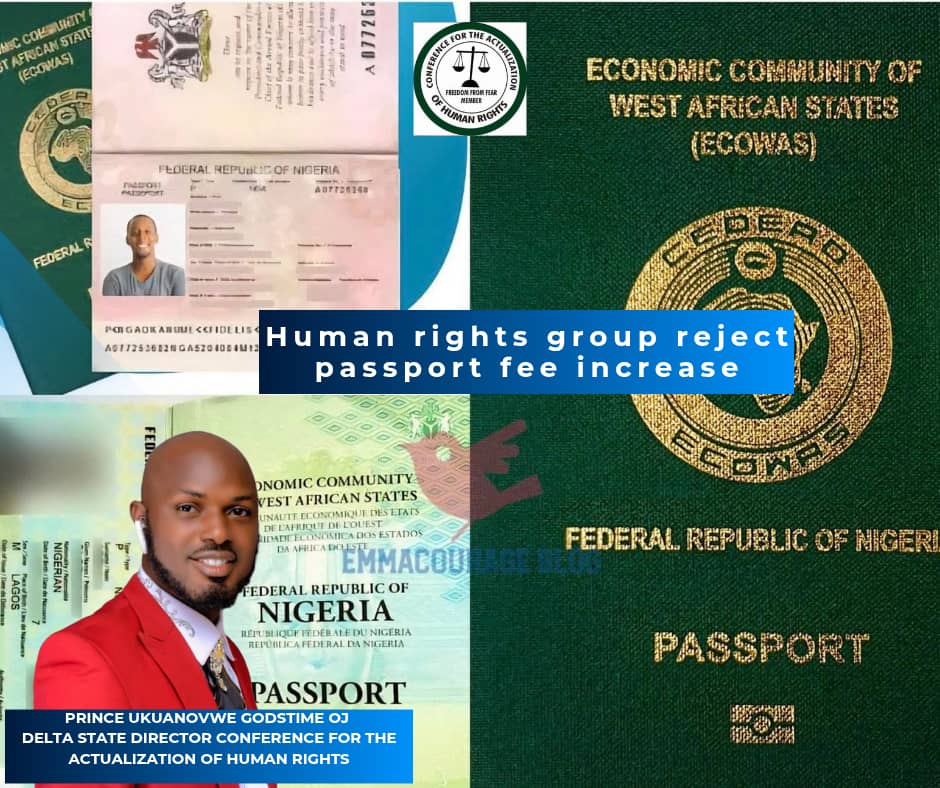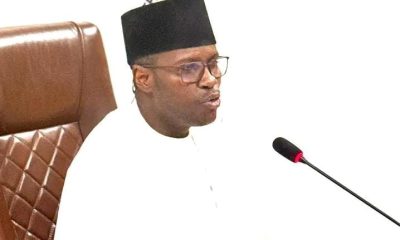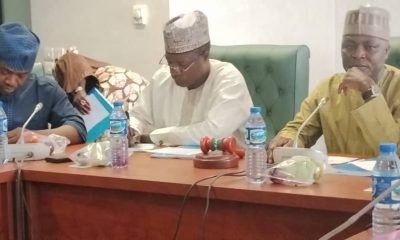National
Passport is Not a Luxury – Human Rights Group Blasts Tinubu Govt Over 200% Fee Hike, Calls It a “Tax on Movement”

A major human rights organization has launched a scathing attack on the Federal Government over the recent international passport fee increase, labeling it an “unjustifiable tax on the fundamental right to movement” for ordinary Nigerians.
The Conference for the Actualization of Human Rights (CAHR), Delta State Chapter, in a strongly worded statement today, demanded an immediate reversal of the new rates, calling them “economically insensitive and punitive.”
The new structure, announced by the Nigeria Immigration Service (NIS), sees the cost of a standard 5-year passport jump to ₦100,000, a 100% increase from the previous ₦50,000 and a staggering 200% rise from the ₦35,000 fee charged just two years ago.
Prince Ukuanovwe Godstime OJ, Delta State Director of CAHR, stated, “This is the second drastic hike in under two years of this administration. The government is placing a vital document behind a prohibitively high paywall. A passport is not a luxury item; it is an essential document for education, business, and healthcare. This policy effectively denies millions of Nigerians their basic rights.”
The group pinpointed the severe impact on vulnerable citizens, including students seeking education abroad, low-income families, and those requiring urgent medical treatment overseas. They also raised a specific alarm over the lack of a differentiated fee for children.
“It is patently unfair to charge an infant the same exorbitant rate as an adult. This shows a profound lack of consideration in the policy,” Prince Ukuanovwe added.
The statement issued a direct call to action to the Comptroller General of the NIS, the Minister of Interior, Dr. Olubunmi Tunji Ojo, and President Bola Ahmed Tinubu.
Their key demands are:
1. An immediate downward review of passport fees to an affordable and accessible rate.
2. The creation of a protected fee structure for minors (ages 0-17), students, and low-income earners.
3. A government commitment to prioritize citizens’ welfare and their right to freedom of movement over revenue generation.
“We cannot stand by and watch as our right to movement is auctioned off to the highest bidder,” the Director concluded. “We urge the government to listen to the plight of its people and reverse this decision immediately.”













